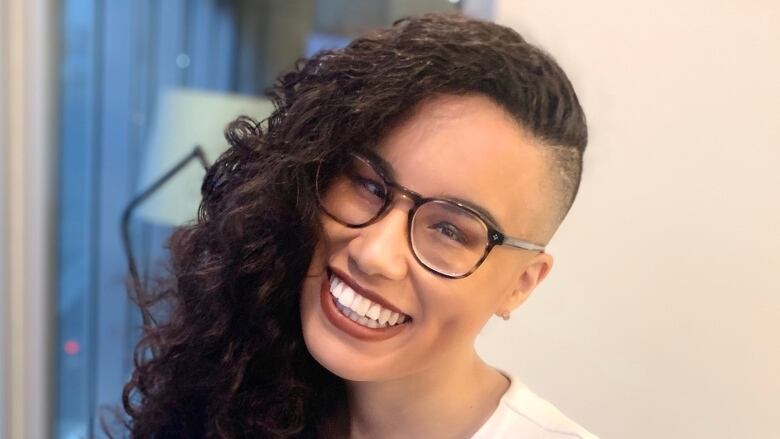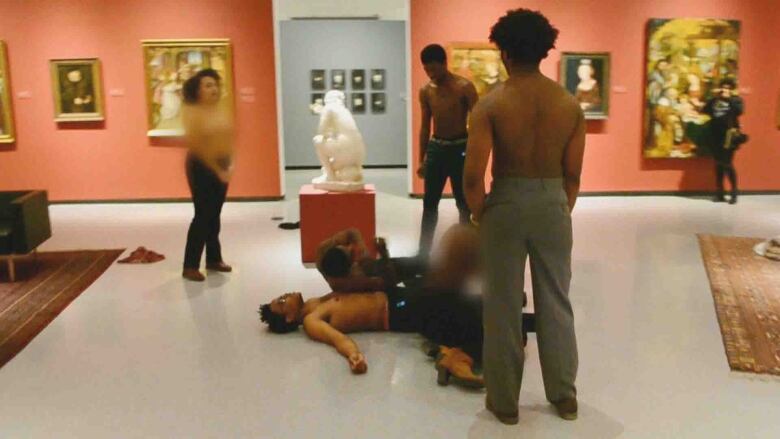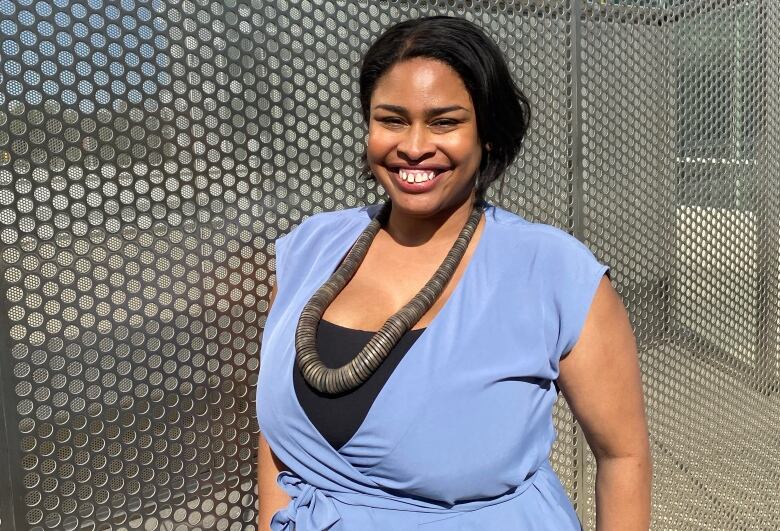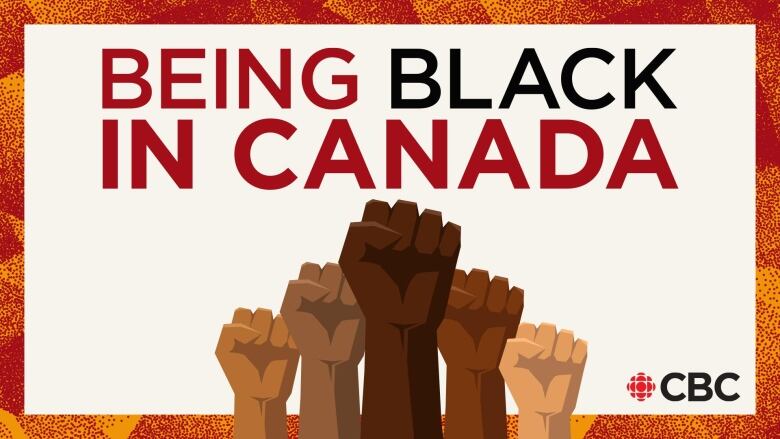CBC's Uncensored looks at why art galleries need to better showcase Black, POC artists
'Whitewashed' arts community needs to be more inclusive, says host Alexa Joy

This summer, the Winnipeg Art Gallery published a letter written by Winnipeg-based Nigerian artist Chukwudubem Ukaigwe in response to the injustice and police brutality Black and Indigenous communities experienced.
Though we know this targeted violence persists on a systemic level, I found it interesting that the WAG would publish a letter addressing this type of violence but would not take this as an opportunity to publicly acknowledge their shortcomings to promote and support Black artists and address the anti-Blackness within their organization's landscape.
When confronted last year about the poetic demonstration at the gallery lead by Black artists in the community, a WAG official said he totally agreed with Ukaigwe's callout, going on to say he believes there is room for more representation of Black artists, and is open to learning more on what the students want to see.
If we can say the WAG is "open to learning," they had nearly over a century to do so (since the founding in 1912).
What seems obvious for people frustrated with the lack of diversity within the walls of different art galleries is the general lack of consideration and implementation for showcasing Black art.

Black artists have been subjected to this anti-Black racism in the cultural sector as an afterthoughtor not even thought about at all, in major curatorial decisions.
When you're one of Canada's most prestigious arts institutions and remark that you're"open to learn" and"there's room for more representation," itconveys that Black artists were never in the institutional plans from the beginning. Only when people publicly call out these institutions dothey respond.
It begssome deeper questions.Where would we be without the call to action we saw this summer? Would there have ever been this amount of attention in a summer that wasn't drowning in "white guilt?" And what will it take to restructure the Canadian art world that excludes our artists and histories?
In this week's episode of Uncensored, titled White Walls,we respond to the Eurocentrism of the Winnipeg and Canadian art world.
Sally Frater, the current curator of contemporary art at the Art Gallery of Guelph, and Winnipeg's own Allison Yearwood, executive director of the Plug-In Institute of Contemporary Art, expanded on this dialogue, calling attention to the performative attempts galleries display to increase inclusion and representation.
"We need staff members who represent the underrepresented communities. We need Black voices curating Black artists, versusother people borrowing pieces of us again and again," Yearwood says.

Both Yearwood and Frater stress the importance of this responsibility to involve Black curators and arts administrations within the artistic infrastructure.
"There needs to be a commitment in supporting Black artists," Frater said. "We need to be a part of the infrastructure and there needs to be a commitment on the part of non-Black curators as well, to be familiar with the practice of Black artists."

It's not just the Winnipeg Art Gallery we're talking about. There's a deep-rooted problem amongst numerous arts collectives and galleries throughout the city.
This summer, Ace Art Inc. acknowledged their lack of accountability, in prioritizing support and space for Black artists and creatives alike. Most arts collectives and organizations in the city are overwhelmingly white, contributing to the Eurocentric culture of the arts scene.
Don't believe me? Just go on the arts organizations' staff lists. They speak for themselves.
Personally, after working with more than 10 arts organizations, consulting and hosting artists events, running a film festival and performing in Winnipeg, it's safe to say we need more than a statement saying there is "room for representation."
The next time you're at a Winnipeg gallery and see nothing but white on the walls, maybe ask yourself, is this what you want to see?
If not, help make it better.
Uncensoreda show airing on CBC'sInformation Radio, Thursdays at 7:35 a.m. CT exploresthe realities facing Black communities in Canada, including Manitoba.
For more stories about the experiences of Black Canadians from anti-Black racism to success stories within the Black community check out Being Black in Canada, a CBC project Black Canadians can be proud of.You can read more stories here.

This column is part ofCBC's Opinion section.For more information about this section, please read thiseditor's blogand ourFAQ.












_(720p).jpg)


 OFFICIAL HD MUSIC VIDEO.jpg)
.jpg)



























































































